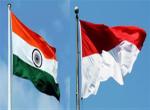Geo-Political perceptions of Pakistan’s role in Afghanistan
Before one can dwell on India’s options in Afghanistan, it may be better to examine the Pakistan’s role in this country. The geo- political perceptions of Pakistan in Afghanistan should be examined in the light of Pakistan’s persistent effort for establishing a pliable and subservient regime in Afghanistan. It seems Pakistan has been advocating the necessity of strategic depth in Afghanistan to mask its territorial ambitious and its aim of expanding its strategic frontiers towards west and Central Asian regions.
Secure western borders and a subservient regime will enable Pakistan to deploy most of its armed forces against India. Pakistan’s policy of gaining strategic space in Afghanistan is not new but probably is directly related to their ambition for carving out a larger Islamic entity in the South Asian region jointly with the global Islamic jihad movement to emerge as a dominant power in South Asia. Pakistan Military’s unwarranted concerns about the Afghan army developing a potential to take on Pakistan comes in the context of India’s increasing influence in Afghanistan. To counter this Pakistan obviously wants Afghanistan ruled by a radical Islamic group over which it has significant influence and that would give no quarter to India.
Pakistani Interests
- Pakistani Military presents India as the prime adversary and a persistent long-term enemy, and it has been constantly making efforts to convince Washington that Pakistan’s strategic needs must be met in Afghanistan. This means keeping Afghanistan firmly in Pak grip by exploiting religious affiliations. Their interests in Afghanistan are primarily linked to the Indo- Pakistani conflict. Accordingly, it has managed to turn almost every other dimension of its regional policy—such as its dispute with Afghanistan regarding the border issue and Pashtunistan, and its dealing with Central Asia and the United States –into a zero –sum game with India.
- Preventing a dominant Indian influence in Afghanistan, which could evolve into an alliance between the two countries and trap Pakistan in a two –front situation, is Islamabad’s first objective. Paranoia feeds its strategic outlook, hence the floating accusations of terrorism and sabotage, conspiracy theories regarding Indian consulates in Afghanistan, and allegation of Indian support for the Baloch and Wazir insurgencies. A stable, friendly, and cooperative Afghanistan, in the eyes of Pakistan, is necessarily an Afghanistan under close Pakistani control, denied all possibilities of direct trade with India.
- The Pashtun question is an issue in its own right and reflects to a large extent Pakistan’s identity- related insecurities. It concerns both Afghanistan’s irredentist claim on the territories located between the former Durand Line and the Indus River as well as to the deep- rooted suspicion of extra territorial affiliations of the Pakistani Pashtuns. It is also an economic problem for Pakistan, as smuggling across an unrecognized border.
Pashtun Question
India’s Interests
India’s security concerns involving Afghanistan are concrete and tangible. They include (1) the prospect of the return of the Taliban and its likely impact on militant Islamic fundamentalism in the region in general and Pakistan in particular; and (2) what it perceives to be the Taliban’s symbiotic relationship with a revanchist military- jihadi nexus in Pakistan that India holds responsible for a series of security challenges, political reversals, and terrorist incidents that (involving Afghanistan alone) include the use of jihadi forces nurtured in the region by Pakistan against India in Jammu and Kashmir since the 1990s, the unceremonious exit of India from Afghanistan with the arrival of the Taliban in Kabul in 1996, the Kandahar Indian airlines hijacking and terrorist- hostage exchange in December 2000, and the two bomb attacks against the Indian Embassy in Kabul in July 2008 and October 2009. India sees the visible hand of the Pakistani military in these incidents as the closest examples of state- sponsored terrorism today.
The territory of modern-day Afghanistan has historically been a staging ground for almost every overland military expedition into India, whether to plunder or to rule, from Alexander to the Central Asian Turks to the Mughals. Culturally, Afghanistan was also a gateway for Arab-Indian exchanges of knowledge and learning, Sufi Islam, Greek and Persian arts and aesthetics, and the spread of Buddhism from India to Central Asia and beyond. This shared tradition of religious tolerance stands in sharp contrast to the currents of Wahhabism sweeping through the region today- currents that India would like to keep at bay.
In sum, India has an abiding interest in (1) containing, and if possible reversing, the tide of Islamic fundamentalism and militancy in the region; (2) an independent, united, peaceful, multiethnic, and non- extremist Afghanistan capable of standing on its own feet; (3) stronger economic relations and cooperation in the region on trade, transit, and energy; and (4) continued long- term international engagement in Afghanistan.
India’s Aims
There has been a broad congruence between Indian interests and coalition political-military activities in Afghanistan in preventing the return of the Taliban, defeating al-Qaeda, and trying to stabilize Afghanistan around a non- Taliban order. India was a supporter and net beneficiary of the post- 9/11 U. S. military intervention in Afghanistan and recognizes that the U.S. and coalition presence in the region is necessary, at least for some time, to prevent the return of al-Qaeda and the Taliban.
There are, however, differences of perception between India and the United States/coalition over specifics, notably (1) the relative threats posed by al-Qaeda, the Afghan and Pakistani Taliban, and the Pakistani security establishment to their respective security interests; (2) the arguable confluence of interests between the U.S and Pakistani military in tackling the Taliban in “AfPak” and the reliability of the Pakistani military as a partner in the campaign; (3) perceived coalition susceptibility to Pakistani sensitivities (and propaganda) over India’s role in Afghanistan and its linkage with India- Pakistan issues; (4) the role of other neighbors and regional stakeholders in dealing with the resurgence of Taliban extremism in AfPak; and (5) the issue of negotiations with the Taliban. These differences have been handled discreetly so far but could spill out into the open over the extent to which Pakistan is allowed to shape any future negotiated political settlement in Afghanistan.
India broadly agrees with the need to pursue a civilian- sensitive counterinsurgency campaign in Afghanistan, at least until the Taliban’s current momentum has been reversed. It strongly supports the development of the Afghan security forces and their eventual takeover of security responsibilities as the best guarantee for the independent and long- term stability of Afghanistan. India also supports the U.S. commitment to remain actively engaged in Afghanistan, though it may differ on how this should be put into effect.
India feels that the sophisticated U.S.- led counterinsurgency strategy needs to be complemented by more robust political, economic, and diplomatic strategies. India particularly supports the inclusion of other regional players, such as itself, Iran, Russia, and the Central Asian Republics, rather than relying solely on the Pakistani military, which has a stake in keeping the Afghan Taliban alive in support of its interests in Afghanistan and India. This dependence (in India’s views) leaves the coalition vulnerable to Pakistani manipulation and conditions for cooperation that are contrary to the coalition’s objectives in Afghanistan.
India is also concerned that the reduced U.S. counterinsurgency goals and expedited withdrawal of U.S. troops from Afghanistan and training of the Afghan National Security Forces may be too limited and too rushed to reverse Taliban’s momentum.
India’s Policies
India’s approach to promoting its interests in Afghanistan has been mainly political and development and long predates the Soviet intervention in Afghanistan. Though it backed the Northern Alliance politically and to some extent military against the Taliban when it was in power, post- Taliban, India sought promptly to rebuild its relationship with the Pashtuns, and quickly aligned itself with the post- Bonn Agreement government in Afghanistan headed by Karzai. It swiftly revived its ties with all ethnic groups and political formations in Afghanistan through its consulates in Kandahar, Jalalabad, Mazar-i-sharif, and Heart. India has also embarked on humanitarian, reconstruction, and development projects all over Afghanistan. It has no interest in deploying troops to Afghanistan, which it feels could affect its good reputation in the country, but concern over the security of its personnel in Afghanistan could necessitate an expanded paramilitary presence.
India believes it can contribute best to the goal of stabilizing Afghanistan by its ongoing efforts aimed at building institutions, developing businesses and human capital, and strengthening the capacity of the Afghan state to provide for the security and welfare of its own citizens with a view to an independent, pluralistic, democratic, and united Afghanistan. It favors stronger, more Afghan-centric, and more inclusive regional economic and political approaches to the country’s problems.
Economically, India lacks direct road or rail access to Afghanistan. Nevertheless, it has committed about 2 billion US dollars in humanitarian, reconstruction, and developmental assistance for Afghanistan, making India the fifth largest international donor to Afghanistan with projects spanning hospitals, infrastructure, and the social sector. While it promotes bilateral commercial relations with Afghanistan in general, India’s economic investments there have been mostly developmental, rather than aimed at the exploitation of Afghanistan’s natural resources. It has made strategic investments in opening sea, road, and rail links through the Iranian port of Chahbahar to enhance its access to Afghanistan and Eurasia, as well as reduce Afghan dependence on Pakistan for trade transit. India believes that its development assistance to Afghanistan is guided by Afghan needs and priorities.
The lack of direct land access and transit arrangements between India and Pakistan also deprives Afghanistan of the benefit of India’s huge market for its goods and services. This has economic as well as political implications. Freer access to the Indian market would stimulate the Afghan economy, especially in the Pashtun areas of southern and eastern Afghanistan with which India has had a traditional trading relationship. It would also channel local energies away from insurgency toward peaceful economic activities.
India is a strong advocate of regional economic cooperation involving all of Afghanistan’s neighbors to form transit corridor linking the energy-rich West and Central Asian region with the energy- deficient subcontinent. The primary obstacle to such links within the South Asian Association for Regional Cooperation, which Afghanistan joined in 2005, has been the state of India- Pakistan relations, particularly Pakistan’s reluctance to facilitate freer trade and transit between India and Pakistan and beyond.
---------------------------------------------------
Published Dated: 15th September, 2011










Post new comment